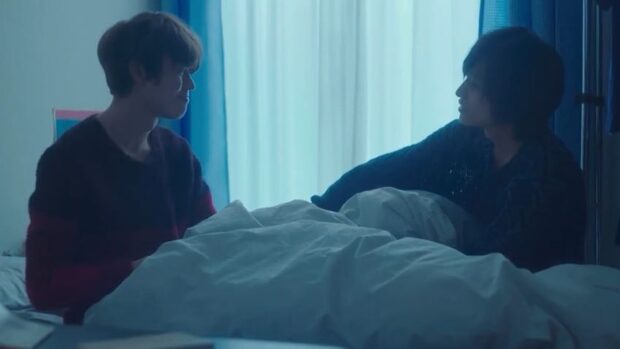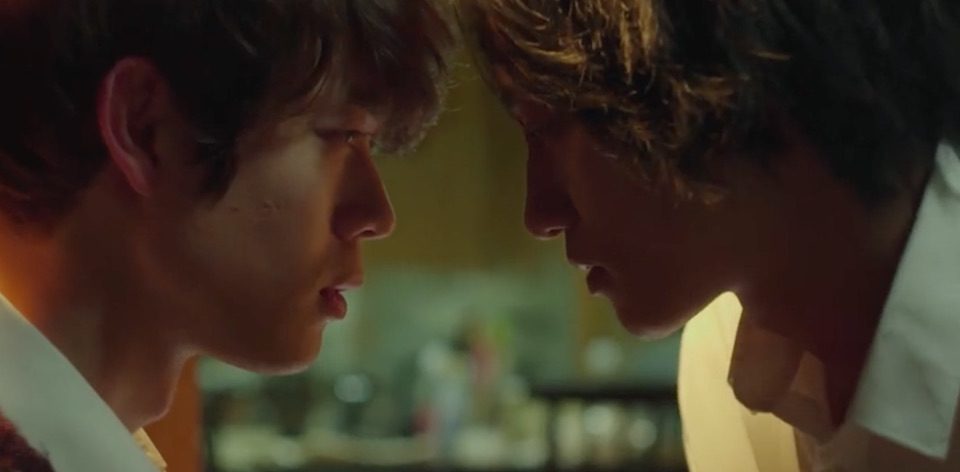Following the double-punch last year of Just Only Love and the wonderful Little Nights, Little Love, I was excited to see a new film from the prolific Rikiya Imaizumi this year. Here he brings his delicate touch and character eye to contemporary LGBTQI+ issues in Japan, specifically the right for a same-sex couple to be recognised as parents.
The film takes its time exploring the dynamic between Shun (Hio Miyazawa) and Nagisa (Kisetsu Fujiwara), and seeing how their brief school romance plays out years later when Nagisa arrives with his 6-year-old daughter. Like Little Nights, Little Love, Imaizumi achieves this through well-paced vignettes of their lives in a small town.
By comparison, Nagisa’s (soon to be ex) wife (played by Wakana Matsumoto) is a career-minded woman in the big city. I would be remiss if I didn’t reflect on he portrayal being one of the more troubling tropes in the film: she is mildly abusive to her child, and is initially unable to juggle parenting and work without the aid of alcohol. The simple dichotomy with Nagisa and Shun makes it easier to side with the couple, especially when the courtroom sequence begins.

Which is the other tropey moment in the film, where homosexuality is briefly put on trial as part of the custody hearings. It’s a familiar path for cinema, and a heavy-handed one perhaps. Despite Japan’s comparatively liberal attitude towards LGBT issues (especially when compared with other parts of Asia), there’s still some way to go when it comes to recognition of same-sex couples and anti-discrimination laws. Mind you, Matsumoto’s character gets an equal serving in court for being a woman trying to “have it all.”
This doubles-down on the conservatism the court still defers to. In the 2019 documentary Queer Japan, several interviewees point out that it’s not so much prejudice as it is an inability to break away from “tradition.” To Imaizumi’s credit, he doesn’t use his fictional courtroom to try and resolve any of these issues.
Despite these relatively minor issues, Imaizumi’s film is about a gentler path to acceptance. The 6-year-old daughter (played by the adorable Sakura Sotomura) accepts her father’s new relationship without question, and the small town barely bats an eyelid when the couple officially ‘outs’ themselves. In this way, Imaizumi has his cake and eats it too, showcasing where progress is needed by laying it down on a bedrock of hope.
2020 | Japan | DIRECTOR: Rikiya Imaizumi | WRITER: Atsushi Asada | CAST: Hio Miyazawa, Kisetsu Fujiwara, Wakana Matsumoto, Sakura Sotomura | DISTRIBUTOR: Phantom Film (JPN) | RUNNING TIME: 127 minutes | RELEASE DATE: 24 January 2020 (AUS)






